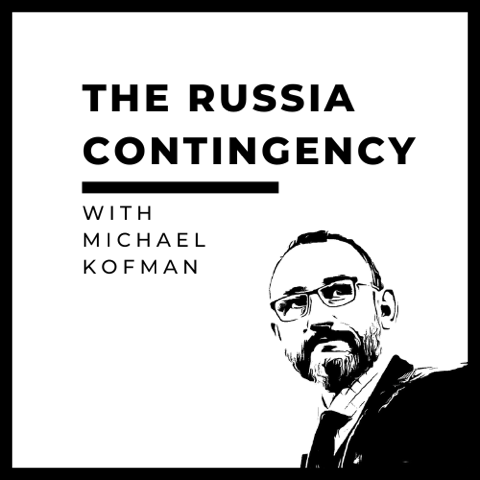Submission Statement
Michael Kofman shares his thoughts about the last 24 hours in Russia. Unfortunately, I have no way of sharing the podcast in a publically available manner, but the key points are below.
Michael Kofman is the Director of Russia Studies at CNA and a Senior Adjunct Fellow at CNAS.
Summary of Events
-Almost exactly 24 hours ago, it looked like Prigozhins conflict with the MOD had reached a boiling point, when he announced a march on Moscow, demanding the resignation of Shoigu and Gerasimov.
-The Russian government moved quickly to shore up its ranks, releasing public statements from within the Russian military(General Surovikin) and Russian government(FSB) against the coup
-Most of Wagner was likely not at the front when the announcement was made. They were likely in training camps in Luhansk. This facilitated a very quick advance into Rostov-on-Don and the Southern Military District headquarters located therein.
-Most Russian units stood by due to chaos and confusion, as well as the perception of Wagner forces as friendly units.
-By morning, a relaxed “standoff” had developed between Wagner and MOD forces in the city, with some Wagner and infantry pointing guns at the SMD building while others drank coffee or smoked cigarettes.
-This was not bloodless. Wagner was bombed by SU-34s and took down several aircraft themselves. Wagner may have done more damage to Russian aviation than Ukraine has in the past month.
-Kofman cannot imagine that this ends here.
Analysis
-Prigozhin is clearly getting desperate and running out of options, but he may understand something about Shoigu and the regime that we do not as outside observers. Prigozhin saw that Shoigu was weak, that the regime was far more hollow than it looks, and that he had the opportunity to launch this attack and extract concessions even when from the outside it looked pretty futile.
-Even if Prigozhin is talking about Shoigu and Gerasimov, this is a coup against Putin. It is Putin’s power that is being challenged here.
-Wagner’s forces were let through unopposed likely due to confusion and stupidity rather than as a show of support.
-Coup failed to generate support from elites within the system. Clearly, key security systems(FSB) were on the side of the regime.
-Prigozhin’s timing is terrible. the Russian army is clearly doing better defensively than most had expected, sapping some of the weight from his arguments.
-Most coups fail very quickly and early on. Russia in particular does not have a good history of successful military coups.
-If Prigozhin walks out of this with a deal and his head, we will have learned a lot about Russia in the past 24 hours.
-Personalist authoritarian systems must prevent alternatives from emerging. A coup-proofing system emerges from this. Whether or not he was under a delusion about it, what Prigozhin did was a challenge to that system. Based on what Kofman saw in Rostov-on-Don, the performance of that system was not encouraging.
-Wagner’s regime ties may be through the GRU, and the FSB was likely opposed to its existence. FSB is likely to send an “I told you so” message to Putin.
-Probably 1500-2000 Wagner forces crossed the border with Prigozhin. The forces that entered Rostov-on-Don looked like two companies worth. Prigozhin is overstating the size of Wagner overall(not 15,000, and certainly not 25,000).
-Prigozhin planned this, but he was also pushed to this by RUMOD ultimatums that would mean the functional destruction of Wagner(forcing Wanger soldiers to sign contracts with military). Russia made the mistake of pushing Prigozhin into a desperate act while also not preparing for that act. Very stereotypical of the competence level of this regime.
-Wagner troops are going to be fine, they are going to be given a general amnesty for this. Putin clearly and publically put the blame on Prigozhin, not his soldiers.
-If Kofman was Prigozhin, he would not trust that deal for a minute. If RUMOD is using this deal to buy time to mobilize their forces, this will not go his way.
-This could have been the beginning. If this had gone on for more than a day, it could have catalyzed the disintegration of the regime as a whole.
-Key questions: Will Wagner abandon their main bargaining chip, Rostov? What are troops and commanders on the front lines thinking about what’s going on back home? What was Prigozhin’s theory of victory, and why did he turn back? Does he understand the full implications of what he did?


deleted by creator